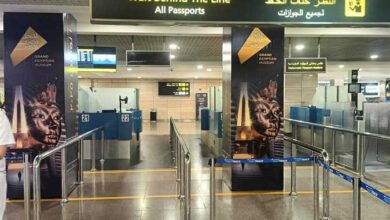It's widely believed that regimes that lack popular legitimacy often resort to torture. Desperate to retain control over their people, such regimes impose authority in the only way they can — through the exercise of brute force. Although police torture has existed in Egypt long before Mubarak, the ex-president’s police state descended to the most contemptible levels of brutality. Indeed, Mubarak’s security apparatus may be his most memorable legacy. It was the regime’s first line of defense against any opponents and it bears responsibility for the deaths of hundreds of young revolutionaries.
A few officers are currently being detained for crimes committed during the clamp down on the uprising three months ago, but the prospect of compensation for victims and their families who have been wronged over the past decades remains faint. It is critical that the upcoming trials of ex-security agents do not proceed in the same fashion as those of previous years: signaling out a few “bad” cops while redeeming the police institution as a whole. Rather, the Egyptian state should come to terms with its past habit of systematically violating human rights in the name of maintaining order.
The choice of National Police Day (25 January) for the protest that sparked the Egyptian Revolution was a sign of public indignation against the security establishment. The sheer callousness with which policemen circulated cell phone videos of themselves sodomizing micro-bus driver Emad al-Kebeer in 2007 and the brutality with which they took the life of Khaled Saeed in 2010 are emblematic of how torture had become endemic to everyday police work. By failing to deal adequately with these scandals, the government chose to protect its own institutions and deny any evidence of systematic abuses by its law enforcement personnel.
Despite the criminal prosecutions now underway against particularly notorious officers, the routine abuses that took place before the revolution do not appear to be receiving much attention in the new government’s justice and reconciliation efforts. In al-Zawya al-Hamra, a Cairo neighborhood, families of over 70 martyrs have vehemently opposed the return of the police to their streets. In a recent conversation, a mother who lost her son during the revolution recounted, “He said there was fighting at the police station. I could tell he wanted to end the injustice that we live in, he wanted it to end. I couldn’t bring myself to tell him not to go.” The residents of al-Zawya have been told that the new policemen deployed to their neighborhood will be different from those who were responsible for attacks on protesters during the uprising. Similar promises have been made to residents of other areas that suffered high casualties, especially during the 28 January protests.
Though the state may try to appease some families of those most devastated by its violent crackdown, the new government is failing to address the underlying reasons that provoked young people to risk their lives battling against police in the first place. It has not sufficiently emphasized the need for institutional reform and fundamental changes in police academy training, both of which are long overdue. The new government and the Supreme Council of the Armed Forces have fallen shamefully short of re-envisioning what it means to have authority over a body of citizens. For instance, there are many documented cases of the army mistreating and torturing protesters and turning them over the military trials. Safeguards must be put in place as soon as possible to ensure that police stations do not fall back into the same practices of abuse and lawlessness.
The acceptance of corporal punishment by considerable segments of Egyptian society is also an impediment to the absolute prohibition of torture or even to revolutionary shifts in mainstream ideas about corporal integrity. Many continue to believe that certain criminals or "destructive elements" in society can be justifiably mistreated. However, a growing number of Egyptians are developing a clear desire for a new order in which human bodies are protected from the physical cruelties of state power.
It's rather unbelievable that today, the state has neither apologized for the murder of Khaled Saeed, one of the revolution’s symbols, nor called into question the general conduct of the Sidi Gaber police station that was responsible for Saeed’s death. Many of us still await an official acknowledgment that such violations were routine, not arbitrary, and a vow to end the practice of torture that has long discredited our security institutions. Egyptians deserve an interior ministry that promises to re-educate its subordinates about respecting the rights of its citizens, and that develops humane techniques that do not rely chiefly on violence, humiliation and secrecy.
Lobna Abulhassan worked for the Middle East and North Africa bureau of the International Federation for Human Rights (FIDH) in Cairo and is currently studying at L'École des hautes études en sciences sociales (EHESS) in Paris, France.



